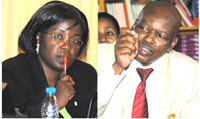National
Parliament to quiz education ministers again
KIMIHURURA - Members of Parliament yesterday voted unanimously to summon education ministers again to explain

Mujawamariya and Murekeraho
